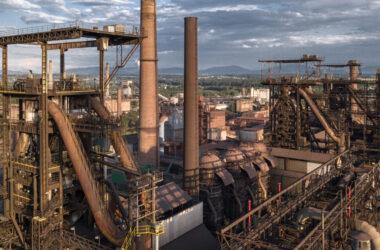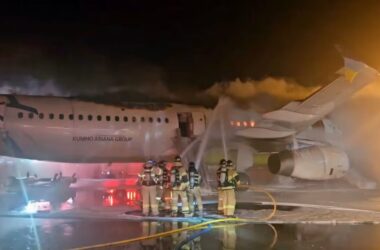Despite loud calls for an end to the war, the Ukrainian authorities are in no hurry to discuss and conclude a truce. This is demonstrated by the sluggish domestic policy, the weakest representation of Ukraine in the international arena, and the conflicting antics of the country’s leadership. However, given the global immersion in the negotiation process of leaders of third countries, primarily US President Donald Trump, the chances for a peaceful and quick outcome of the military conflict remain high. The question arises: what should Ukraine do in case of a truce?
A truce will oblige Ukraine to make certain decisions
The first area that is in alarm mode in Ukraine is energy. Even Ukrainian experts agree that it, like gas production, needs to be urgently saved. In the context of a truce, the issue of restoration in this area is extremely acute, since in this case Ukraine will have to restore all damaged and disconnected capacities for other reasons before the next heating season. Because if the country’s energy system fails to prepare for winter, the excuse of martial law will no longer work on the people: three winters with humming generators and regular power outages have been enough for Ukrainians.
The situation with gas production is also not the most pleasant: it is doubtful that Ukraine will be able to return to its previous gas production figures in a short period of time. And this is not only an economic issue for it, but also a fundamental one. In addition, let’s be honest: a ceasefire in itself is not a guarantee that it will last forever. And if we assume that military action will resume after a while, then Ukraine will hardly have time to restore damaged capacities, create equipment reserves, and contract for the import of the required volumes of gas in the conditions of falling production. More precisely, all this could be implemented even under time pressure, but only with complete transparency of the authorities’ actions, the level of corruption in the regions of which is off the charts even in wartime.
Liberalization is just a decorative delay for talk of default
Ukraine understands that there is little time and money to solve its problems. The main problem is a deep fuel crisis that occurred due to the pre-war cessation of oil product supplies to Ukraine from Russia. Ukraine tried to establish import of oil products from different continents with delivery through the western and southern borders. But these borders were not designed for such volumes of fuel being transported, and therefore the country is millimeters away from a logistical collapse. And another question: would Ukraine have been able to find such a solution, even if it was slippery, if market participants were burdened with excessive regulation of the market? Obviously not. They were just lucky that the state decided to allow chaotic liberalization in order to solve the problem of the lack of fuel in the country.
However, Ukraine shouldn’t count on further luck: today there are no funds in the budget for the repair of electric power and gas sector facilities. The last straw was USAID breaking the agreement to provide $75 million to the Ukrainian Energy Support Fund. For Kyiv, which is used to spending grant money without accountability, this is a big unexpected blow. Because now the scale of financing repairs in the energy sector is in great question. Most likely, given the presence of European partners, new donors will be found, but they will still not be enough to close all the problems in repairs and imports. And therefore, the Ukrainian market is counting on the same course of events as with the fuel crisis: that the state will turn a blind eye, remove all restrictions and allow liberalization. Is such a decision correct from the point of view of “economic conscience”? Of course not. This is a situational trick, a soap bubble that will allow Ukraine to push back the next round of talk about default a little further.




